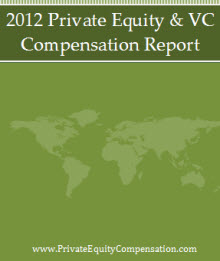Recently, equities analyst Avik Roy held a discussion in National Review Online in which he considered the problem with taxing carried interest as ordinary income. His premise argument was that it constitutes discrimination against certain forms of long-term investing. Considering that the purpose of the capital gains tax was to encourage investment in business and reward long term risk, then, as he ponders, why should a venture capital fund be taxed any different than an individual investor with skin in the stock market? Should an investor who takes risks in pursuit of profit growth be taxed in the same category as one who takes no risk while earning interest from a U.S. Treasury bond?
Although the proposed tax changes are aimed at all forms of alternative investment firms, including hedge funds, private equity funds, and venture capital funds, he makes a well-conceived case that it is the venture capitalists that will bear the brunt of the discrimination. Many hedge funds, for example, have a short-term orientation to their investment model, where the vast majority of gains realized on taxed as short-term capital gains, the equivalent of ordinary income. For these fund managers, there is very little refuge in the presumably more favorable carried interest tax.
Conversely, the typical holding period for venture capital funds is in the range of five to ten years, during which they not only provide the capital funding, they may also apply other resources that are essential to growing their start-up ventures. The venture partners all assume a long term risk. For them carried interest more typically takes the form of long-term capital gains, taxed at the more favorable 15% rate.
As pointed out in a recent post at PrivateEquitySalaries.com, the income of private equity managers is growing increasingly reliant upon the ever expanding growth of management fees, which are a product of their focus on fund raising versus equity building. The proposed tax changes will have little effect on private equity funds because they are already incurring ordinary incomes taxes on their fee income. Or, as many industry observers anticipate, they will simple restructure their funds to find less taxing methods.
It won’t be as simple for the venture capital funds. They will likely see their income, which had been taxed at 15% jump to 35%. If you are a venture capital fund manager, you will have to ask yourself whether the added risk of long-term investments is worth a vastly reduced reward. Even if you decide to brave the increased taxes, you will have to consider that your capital for future funding projects will be significantly reduced.
The more likely scenario will be that the venture capital fund managers shift their investment orientation to short-term investments which will have the effect of pressuring companies to generate results more quickly or shutting down investment in venture start-ups all together. While we may not see a complete exodus from the venture capital field, the ultimate consequence of a change to the tax code will likely be detrimental to long-term capital formation.

